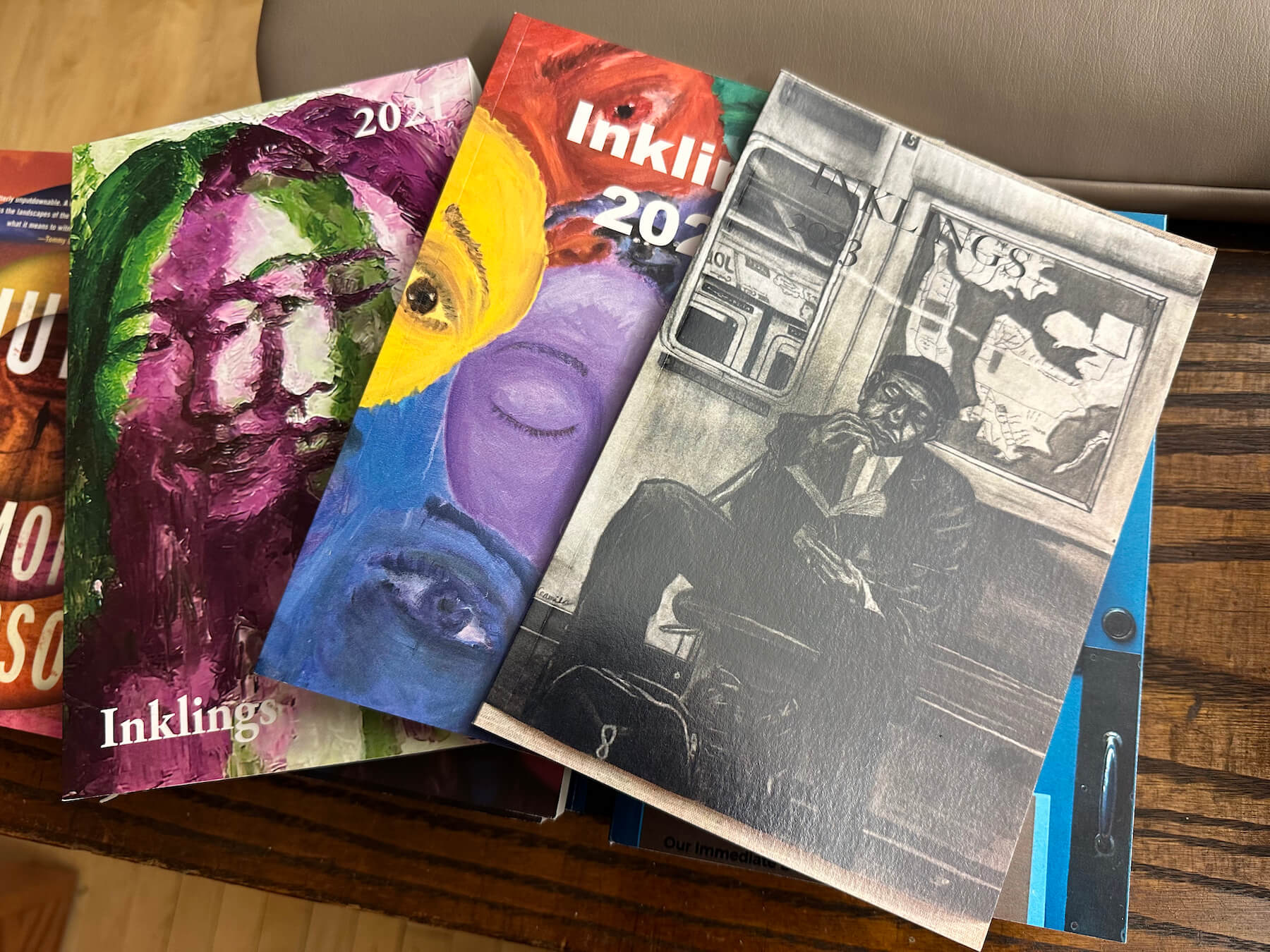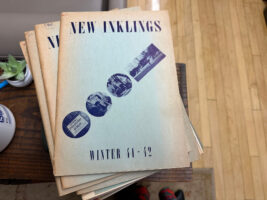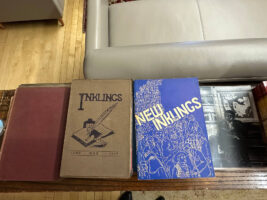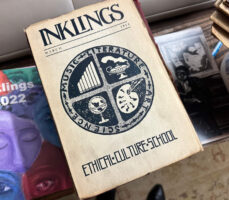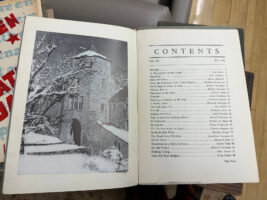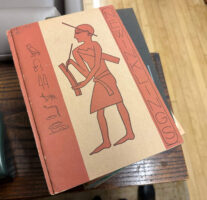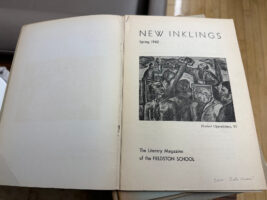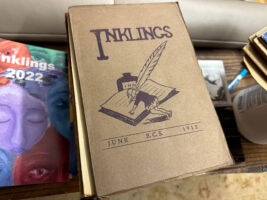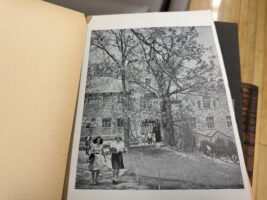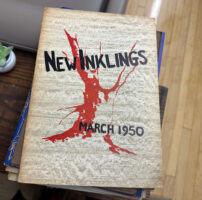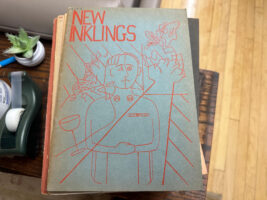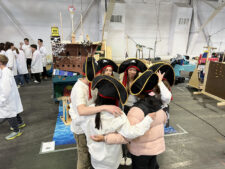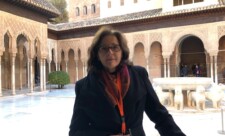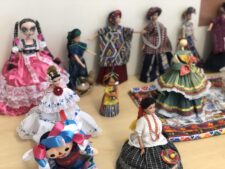Fieldston Upper students are accustomed to expressing themselves through their schoolwork, but one example of this goes beyond the typical classroom setting. “Inklings,” the Fieldston academic journal, dates back to as early as 1902, filling the English Department bookshelves with a treasure trove of academic-turned-historical insights into students’ minds across generations.
While the journal originally showcased students’ original fiction and poetry, the English Department faculty noticed editions from the early 20th century in their office and recognized its editorial potential, and after a long hiatus, they revived the journal in 2016. “I thought including all subjects, like science labs or math problems, would be great for an academic journal of Fieldston,” says English Teacher and “Inklings” co-advisor Gina Apostol. “I hear from my colleagues all the time about the great work kids do in their classes, and I’ve always been curious when my students tell me what projects they’re doing for other subjects.”
Each year, students submit work originally completed for classes to an editorial board comprised completely of students recommended by their English teachers. With the help of Apostol and co-advisor Hannah Oberman-Breindel, English Teacher and Writing Center Coordinator, the editorial board members read anonymous submissions across disciplines and then collaborate to edit a final collection for the “Inklings” publication.

“I think the work that we students do for individual classes can feel extremely all-consuming when we are working on it, but once we hit ‘submit’ or complete the assignment, it’s like it never even happened,” says “Inklings” editorial board member and contributor Addy G. ’24. “Having ‘Inklings’ is a way of recognizing that student-produced work can be much more profound and meaningful than a simple grade or another step to complete the syllabus. ‘Inklings’ is a way to curate student work that hopefully makes students feel more seen and recognized.”
Past editions of “Inklings” count several notable alumni as student contributors, including jazz musician and poet Gil Scott-Heron ’67, Edgar Award-winning mystery writer S.J. Rozan ’67, and Alexander Hamilton Professor of American Studies at Columbia University Andrew Delbanco ’69. In addition to capturing well-accomplished adults’ early work, the annual journal creates a timely account of that year’s most prevalent global issues and what they mean to Fieldston students.
“‘Inklings’ has been around for decades, so by randomly picking up one book, the reader can gaze into not only what was going on at Fieldston at that time, but what was happening in the world as well,” Addy says. “I like to think of ‘Inklings’ as a time capsule from the perspective of high school students, curated by high school students.”
“Even looking at old ‘Inklings’ journals from the 1940s becomes quite evocative and touching when you think that those kids writing sonnets or school essays were also dealing with World War II,” Apostol adds.

“Inklings” content ranges from a student’s original artwork on the cover to essays about personal identifiers such as race and sexuality. In the 2023 issue alone, topics included a family’s immigration history, why football players should play chess, and a letter to a government official critiquing the convict leasing system. The journal’s content also ties back to students’ course material. In previous years, many submissions were in response to works read across Fieldston Upper, such as Cathy Park Hong’s “Minor Feelings” and Elizabeth Alexander’s “The Trayvon Generation.” These common themes emphasize that while the books read and the world events discussed may change, students discovering their voices are central to “Inklings” and its messages. Picking up one of the journals is not only a peek into the past, but also a study of students refining their talents and minds through self-expression and empowerment.
“We emphasize that the editors’ tastes and selections matter,” Apostol says. “As an advisor, I make a huge effort not to include my own opinion during the actual editorial meetings. We listen. Students choose.”
Submissions for the 2024 edition of “Inklings” may be sent to Apostol and Oberman-Breindel.
